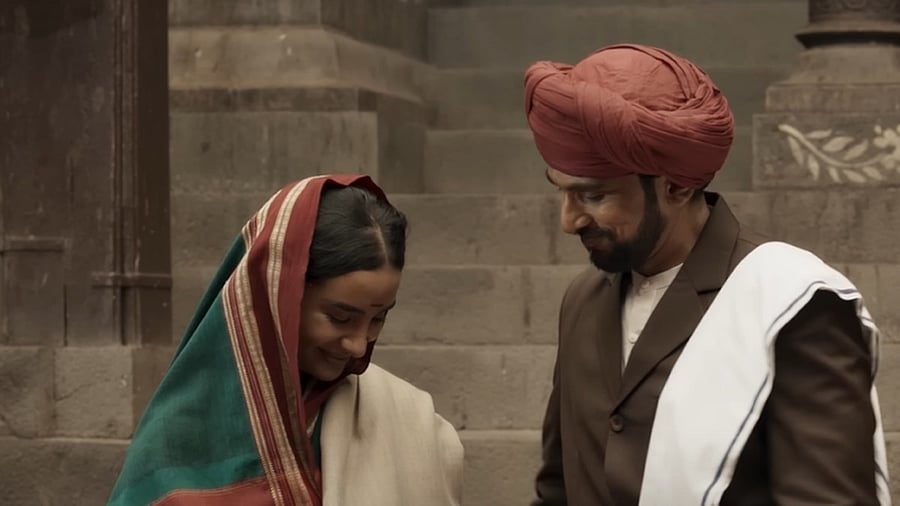
Patralekha and Pratik Gandhi play the revolutionary couple.
Credit: Special Arrangement
The Phule couple were among the few who possessed a comprehensive understanding of India’s casteist and patriarchal society. They also had the ability to empathise with the oppressed. Despite the centenary of celebrations commemorating Jyotiba Phule’s ‘Slavery’ in 2023, the Phules are rarely depicted in popular media.
In Ananth Mahadevan’s ‘Phule’, some aspects of the revolutionary couple who paved the way for a radical change in society is depicted in fragments throughout the film — from Jyotiba Phule teaching his wife English to getting inspired by Thomas Paine’s ‘Rights of Man’, and from the couple opening a school for girl children and Dalits, to facing stiff opposition from Brahmins later. The film also shows Mukta Salve, a student from the school who then became the first female Dalit writer.
The representation of Savitribai rejecting the Peshwa Brahmins’ demand to join in the fight against the British, based on her belief that it would only shift power without altering the societal order, is powerful. Some of the other events show Jyotiba writing his book ‘Gulamgiri’ and starting the Satya Shodhak Samaj. However the film is marred by technical flaws. One of the biggest drawbacks is the overuse of background music. It feels detached from the overall mood of the film. Costumes and props fail to transport viewers to the early 19th century India.
Including the political changes that were happening in the country in the backdrop of the reformation could’ve provided more context. Though Pratik Gandhi and Patralekha have tried their best to fit into the roles of Jyotiba and Savitribai, they lack emotional touch.
Although the director has tried to bring one of the most important pieces of Indian history on the big screen, the narrative’s impact is not as strong as the Phule couple’s radical vision.